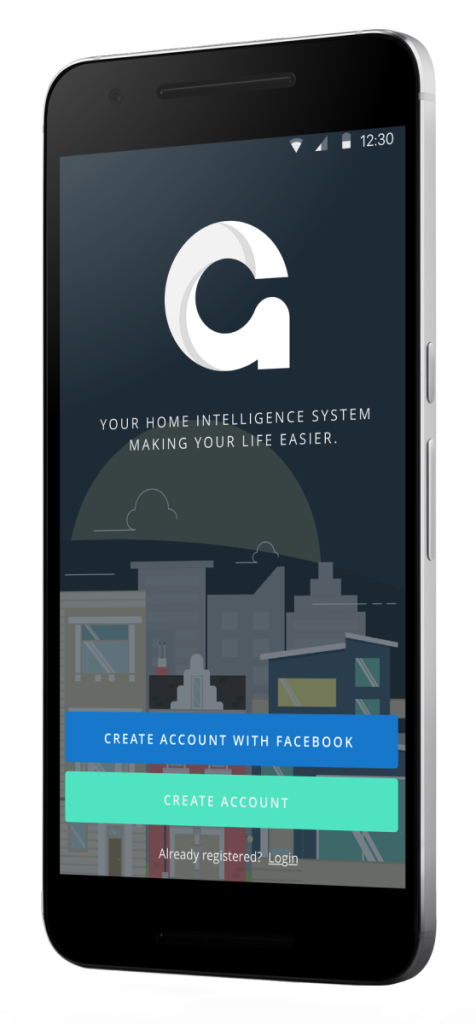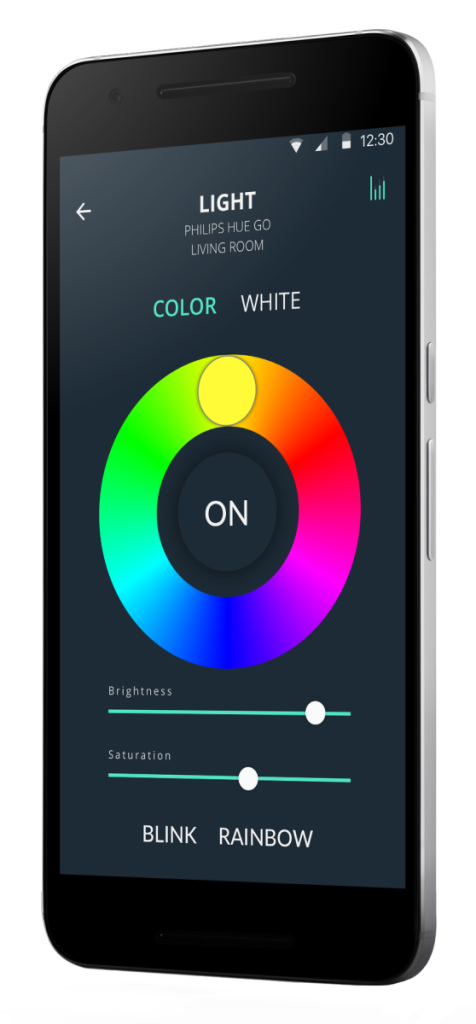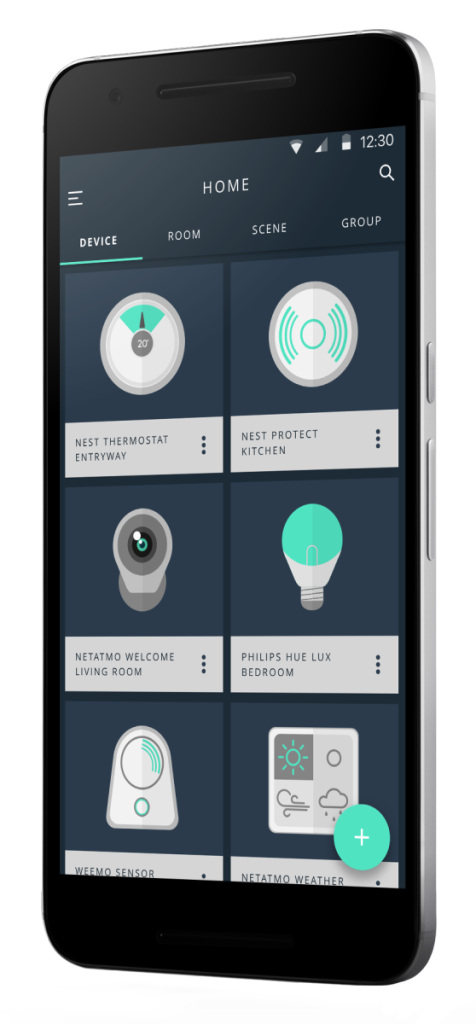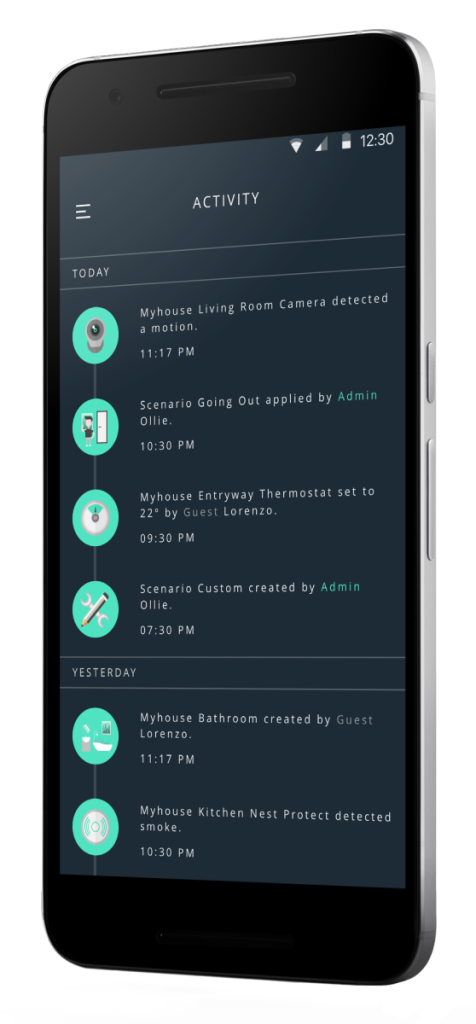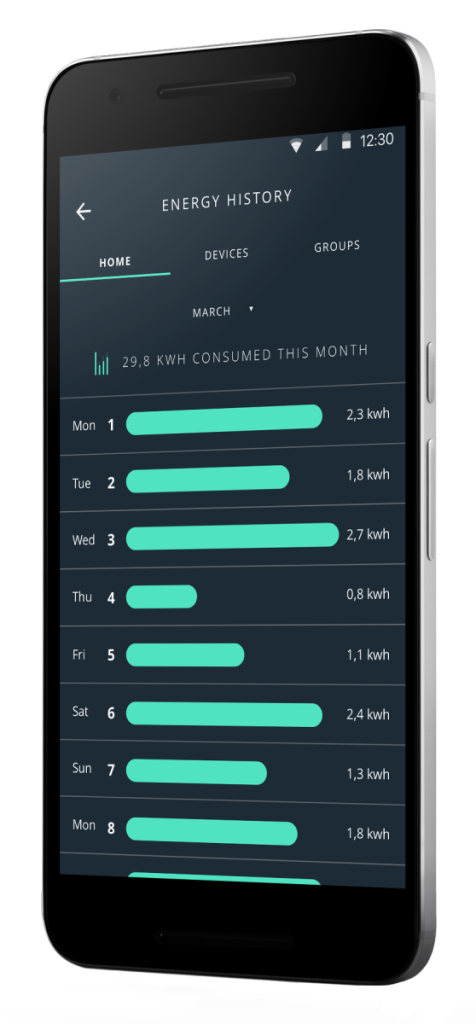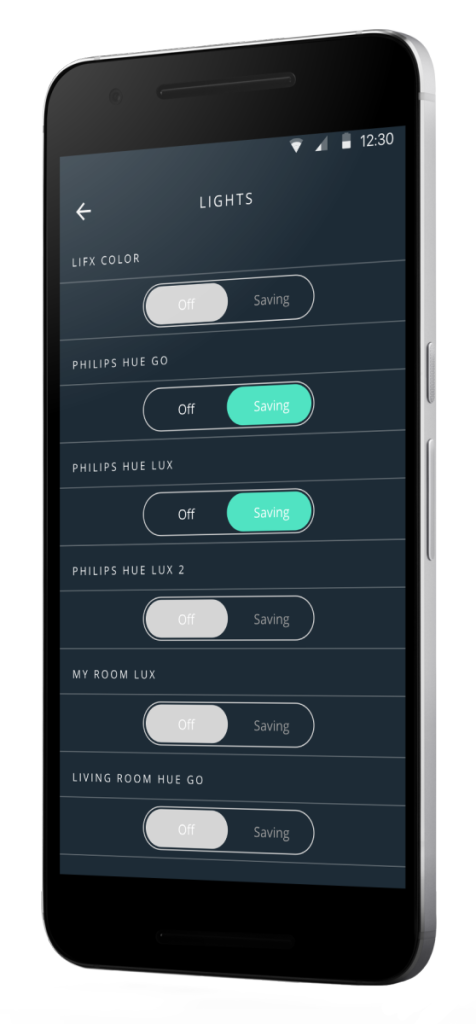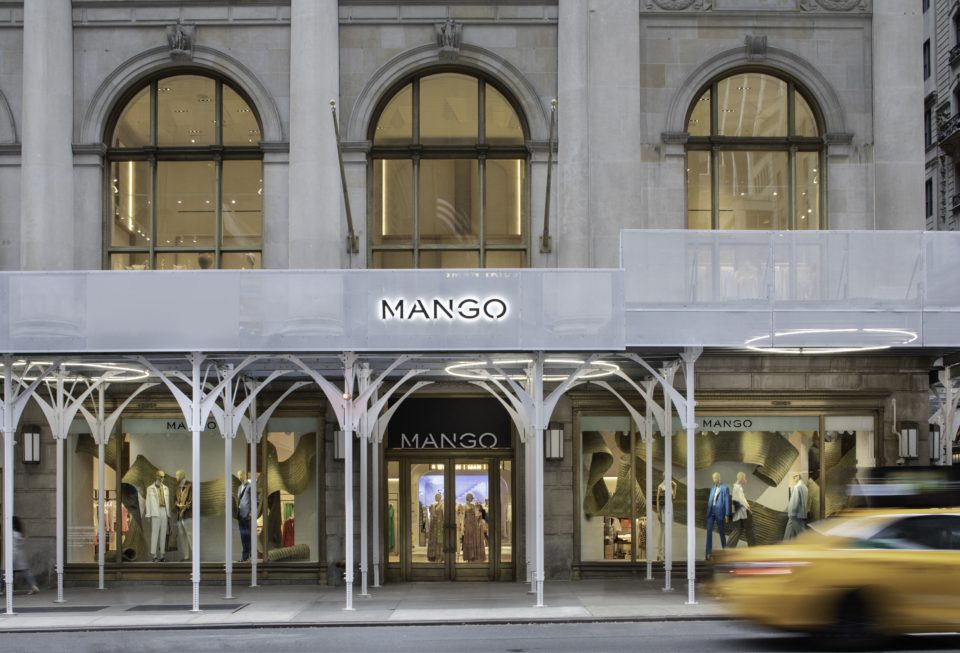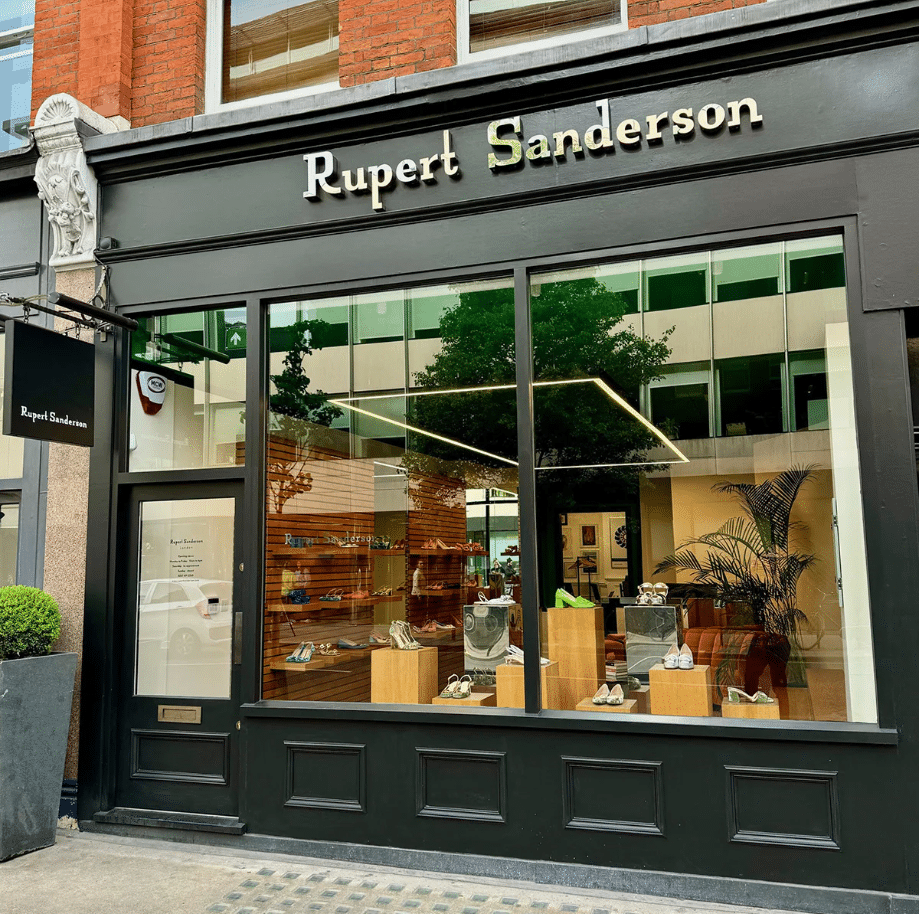Retail and the connected home: Marco Matera of Gideon on how the IoT is changing how we shop

The connected home is booming and with it come new opportunities around the way we shop. To find out more, we spoke to Marco Matera, Chief Commercial Officer & Co-Founder of BrainDrain Solutions, the company behind smart home platform Gideon (formerly Alfred Smart Home). We discussed how the IoT is bridging the gap between customers and manufacturers, the scope of connected technology and how education is key.
Could you describe what BrainDrain Solutions and Gideon do in a nutshell?
We exist because the smart home is not smart yet. The Internet of Things (IoT) in general is not smart yet. We’re trying to solve the problem in the market, and for the user, of fragmentation. If you have 10 smart home devices you need 10 different apps to control them, and it was probably better when you were just wandering around the house to turn everything on. You waste a lot of time and you could not call this solution smart. So we’ve created this automation platform called Gideon, which is now moving to a complete IoT platform. We’re busy trying to create a universal remote for IoT devices. Basically users can connect any IoT devices that they own to our app without any additional hardware.
How do you think the connected home is going to change how we shop?
I consider the smart home a kind of bridge, and the sort of technology that we are creating a bridge. So if we can connect your shelves with Kellogg’s, what happens when they know that you’re about to finish your cereals? This is the most important consideration.
It’s also a much broader concept, the whole ecosystem of the IoT. It is putting the user in the middle of a much bigger ecosystem, connecting their car, their home, their office or whatever to what they are buying – to the supermarket, to the bank. So it’s enabling the user to connect with the manufacturer.
And so do you think they’ll talk to the manufacturer rather than the retailer?
I think that the retailer is something that I don’t want to say is going to disappear. But it’s something that will drop – the concept of going to the store to buy something is a concept that will be very, very small in the next 10 years. There will be some products that people will shop physically for like home appliances or home furniture. But the online experience will be much bigger in the future.
Do you think we’ll get to the point where the IoT could be used for ordering items that the customer has never seen before, as well as automatic reordering?
The first thing to do is to educate users to new technology, new products, and the new way of living your life. You don’t have to force them into doing something. The first thing that they have to do is be educated for a certain product. If you’re educated you’ll buy it. The problem is that people are confused. And people don’t know what to buy, because they don’t know what they’re buying. If they see a Nest thermostat on the wall in a shop, what’s the difference between that one and the £19.36 Honeywell one? It’s exactly the same – it’s a thermostat. So we should teach why that thermostat costs £199. We need to justify why it costs that much and then guide the user. The most important thing would be for us is trying to educate people to a smart purchase.
What we’d like to do and what we’re trying to do right now is get data together for the users to then try to anticipate what they need, and this is something that the IoT devices companies can do. But you cannot do orders on their behalf now. I think that in the future that this will start to happen.
The technology is not a problem. The problem is how long it will take for people to be educated. We are a UK based company. We moved from Italy a year ago to establish ourselves in the UK, and right now we’re working on a reconciliation programme with a US company. The UK is not yet our market at the moment. Because even if it’s the most important or the second most important market for IoT in Europe, people are still a bit sceptical and people are scared of the big change. People will need help in terms of combining the smart devices, to be educated about what smart devices can do. I think that there will be a drop in expectations for those people that would be expecting Ironman style capability, and then they will understand what’s the real value of the smart home. This process will take at least one year, one and half. Even if companies are working on educating users through the source, people will need to get used to it. But to be established I think that it would take five years.
So in three to five years’ time, do you think they’ll be an option within the app to say you’re running low on these certain items?
Let’s take the smart washing machines that are already on our app. One of the things we’ve been talking with major multinational consumer goods manufacturers about is that we may know what the soap level in your washing machine is. So, what if we know exactly when you’re about to finish your soap and then we deliver your soap with a big discount on it if you subscribe for a service that every few weeks delivers you soap based on your average consumption?
Does the Gideon system give users access to all the data that’s being captured about them and does it give them control over which brand they share it with?
The data that we collect and the data that is from users are shared with the users. At the end of every month, there is a monthly report on their consumption and usage, and whatever they have done. So they can be in control of all the different actions. We also created guest management, so that they stay in total control when people stay at their homes. In terms of what data they want to share with the manufacturers, that is something that we cannot control. Because they already subscribe to their servers and are sharing their data with them through the device. We don’t share data with end brands. We take this data and this is part of the business model, the way we use it is something that is private.
Do you envisage most homes devices talking to just one retailer? So the company that the user trusts? Or is it going to be the brand that’s the focus and the company who can fulfil that at the best price? How do you see that playing out?
Right now users can shop through our app for smart devices from partner companies. If people are using our service it means that people trust us. So they trust our brand, and when they make a purchase on our platform then we take responsibility for making sure that the product is delivered and is perfect. Even if we’re not the one that fulfils the package and deliver it. What we have to create is a strong relationship, a long term relationship between us and the user. When they trust us, then we can work with the company that we trust and the companies that are offering the best price for the user.
So are you taking on Amazon really?
No we’re not. In terms of how we shop, how we let people shop, we don’t have an inventory, we don’t have delivery costs or delivery anything. We’re just bridging the gap between the manufacturer and the user, and we’re offering the better price because we are not making a big margin.
We are an open platform, so we can communicate with Amazon Echo. This is something that is going to happen very soon – through our app we’re going to offer an interface and people can order what they want via what’s enabled through our app. We make sure that Amazon Echo works with the devices that are not in the Amazon ecosystem. We make sure that all the devices talk to each other.
What advice would you give retailers on how to grow their sales from the connected home?
The advice I could give to these companies is to try to affiliate themselves with start-ups and companies like us, or other companies specialising in ecommerce or online sales.
If you’re talking about spending more in terms of food or clothes, I think that right now that cannot be sold yet. Because the technologies are not being released yet. Once we have their problem or the problem that they want to solve in terms of sales, then we can deploy a strategy and a technology for that.
That’s what we’re doing with another company in the US. They have an idea, they know where they want to get to. We’re working with them on what they need. We have an answer to their questions.
Do you think are there any aspects of the connected home for retail that are being under explored at the moment?
I think that the same technology that we’re using could be applied to a smart store concept. So basically a kind of proximity marketing solution and if you analyse what customers need based on what they have at home, you can drive them into the store to the best purchase ever.
Do you think there will be a point where all of our clothes have a chip in them that sends data back?
It is absolutely. There’s a girl that I know it’s called Billie Whitehouse. She owns a company called Wearable Experiments and now she’s launching new very high fashion wearable clothes. They’ve done a jacket that will give you a tap on your shoulders to tell you where to go.
Is there anything else you want to add?
I think that the real question is what’s wrong with this market? People are scared of how the retail world will change. People are scared of how their lives are changing. But the real problem is that people’s life will change and we will not know why or how. I think that the answer to this question is that we trust the big companies a bit too much. There are companies trying to take over the world in a monopolistic way and they’re not open to integrating with other technologies or cooperating to improve the way we live. They’re just changing device.
Want to go straight to the hottest retail technologies, latest disruptive thinking and simplest new ways to lower costs and boost sales? Transform your team’s thinking using Insider Trends’ little black book. Find out how here.

